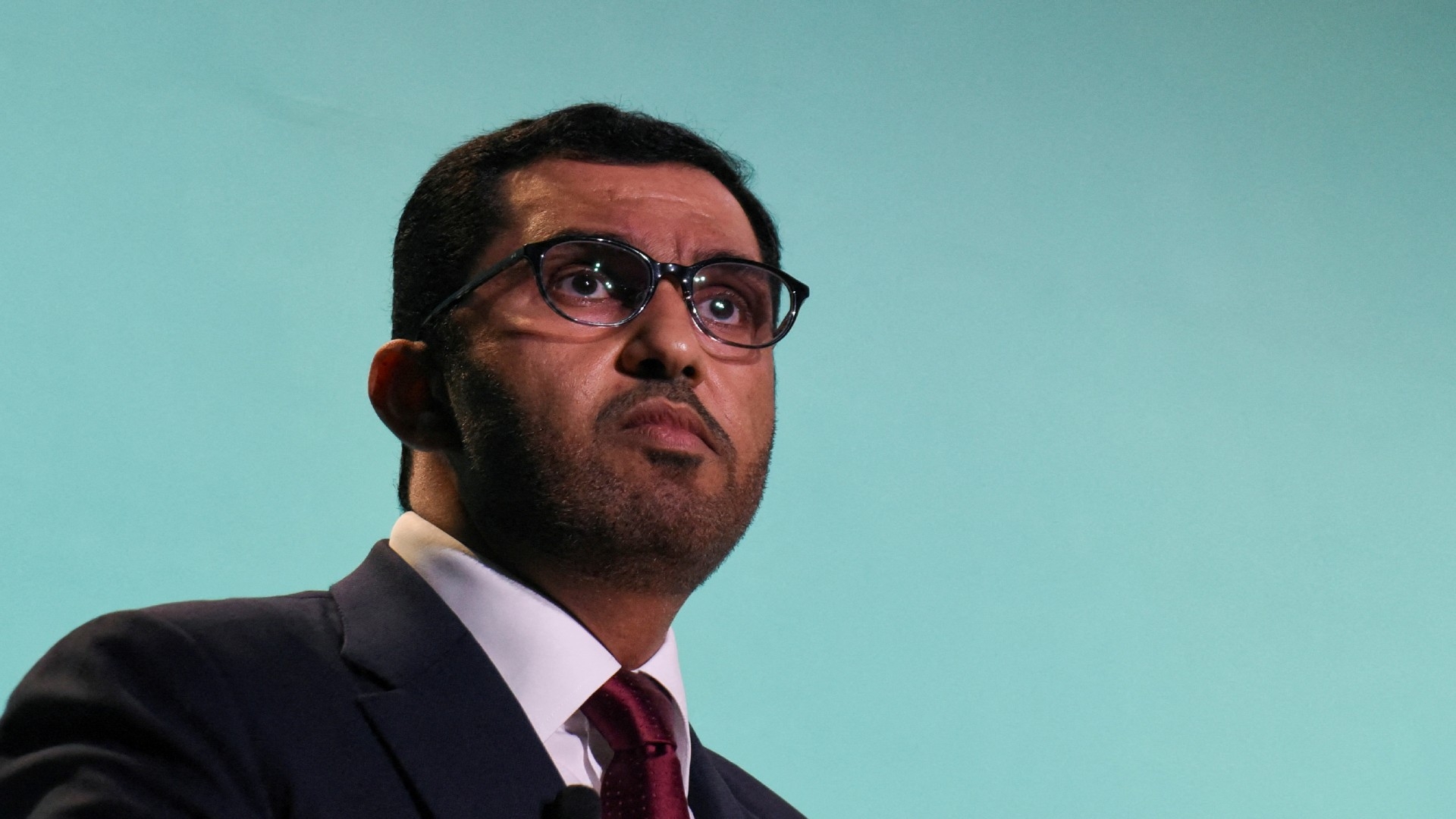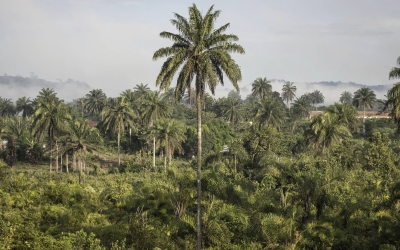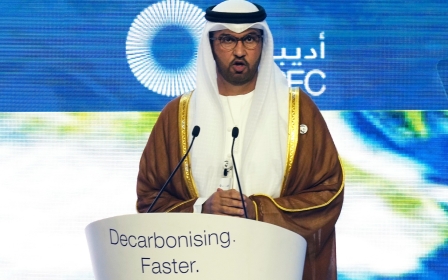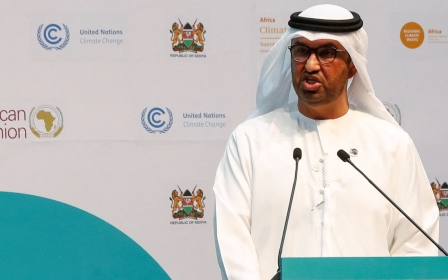Kenya concedes 'millions of hectares' to UAE firm in latest carbon offset deal

Dubai-based firm Blue Carbon has signed a framework of collaboration (FOC) with Kenya's State Department of Environment and Climate Change that would concede "millions of hectares" of its territory for the production of carbon credits.
The credits would be generated supposedly from restoring and protecting the land, and the company would then sell these on to major polluters to offset their emissions.
This follows a slew of similar contracts with Liberia, Tanzania, Zambia and Zimbabwe, which conceded 7.5 million hectares, a fifth of its landmass, to the company.
Cumulatively, the deals concede near blanket control over a total area of 24.5 million hectares, encompassing land inhabited and used by local communities. In the case of Liberia, this would override Liberian land laws that oblige developers to obtain free prior consent from communities.
The FOC with Kenya closely follows a $1.5bn memorandum of understanding signed by Blue Carbon's parent company, Global Carbon Investments, with Harare, which a press release states is "pre-financing for carbon credits in Zimbabwe".
New MEE newsletter: Jerusalem Dispatch
Sign up to get the latest insights and analysis on Israel-Palestine, alongside Turkey Unpacked and other MEE newsletters
The flurry of contracts comes ahead of the UN Climate Summit Cop 28, set to take place in Dubai in November, with carbon credits slated to be a top issue.
The global $2bn voluntary carbon offset market allows carbon emitters to offset emissions by purchasing credits from emission-reducing projects primarily in forest conservation.
Blue Carbon's press release provides scant detail about the terms of the deal, except to state that it is "aimed at reducing emissions from various sectors of the environment such as forest areas" and that the agreement would "generate vital climate financing thereby advancing climate change mitigation and adaptation efforts, promoting sustainable development, and providing significant support for local communities".
Founded only a year ago, Blue Carbon has no experience managing carbon offset projects.
It is led by Sheikh Ahmed Dalmook Al Maktoum, whose close ties to the UAE royal family, which is heavily invested in oil and gas infrastructure, have raised concerns that the firm's deals could be used to offset the Emirates' own emissions.
"They're not reducing their emissions. But now they're buying a licence to pollute. And that licence to pollute is called the carbon market," Fadhel Kaboub, a senior adviser with Power Shift Africa, told Middle East Eye.
A band-aid solution
While the parameters of the deal remain unclear, there is a significant risk that the project will displace communities who live and work on the land.
"There's always that risk," Greenpeace campaigner, Hellen Kahaso Dena, told MEE. "In Kenya... there are no large chunks of land where there are not people."
Kenyan land laws recognise customary land ownership as producing lawful land rights, with the 2016 Community Land Act enabling communities to register and acquire legal titles to their lands.
However, in practice, this has been difficult for communities to implement.
"If there's a government project on that land, it doesn't matter whether you have a title deed," Kahaso Dena said.
'If there's a government project on that land, it doesn't matter whether you have a title deed'
- Hellen Kahaso Dena, Greenpeace
On Thursday, the BBC reported that hundreds of members of the Ogiek community are being evicted from their ancestral lands in the Mau Forest to make way for carbon offsetting projects.
The Northern Rangelands Trust (NRT) has set up 39 conservancies on over 42,000 square kilometers of land in Northern and Coastal Kenya — nearly eight percent of the country’s total land area. A 2021 report by the Oakland institute, based on testimonies by impacted communities, found that NRT had evicted pastoralist communities and deployed armed security forces who perpetrated serious human rights abuses. While a “due diligence report” commissioned by the NRT disputes these allegations, the Oakland Institute produced extensive documentation of petitions, legal cases and protests by community members. The Institute also claimed that the NRT investigation failed to consult the communities interviewed in the original report.
"What happens is that communities on the front line are frequently displaced. We're talking about pastoral communities... communities that have ancestral land that they no longer have access to, and these are not the communities that cause climate change or contribute to climate change," Kaboub said.
Two months before the inaugural African Climate summit in September, the Kenyan government rammed through legislation overriding customary land laws, stating that the land covered by a carbon trading permit "includes any area either above or below the land and airspace of the Republic of Kenya including forests, internal and territorial waters and the seabed underlying these waters".
A climate finance gap
The UAE is pitching itself as the leading investor in the African carbon market.
At the Africa Climate Summit in September, an Emirati coalition committed $450m towards producing carbon offsets on the continent and buying land from African governments.
Grassroots African campaigners reported that the summit was dominated by proponents of market-based financing instruments, including US-headquartered McKinsey, which shunted African interests to "the back burner".
Despite mounting evidence indicating that carbon credits have "no environmental worth", carbon trading is also expected to dominate the upcoming UN climate summit.
But a dearth of climate financing leaves developing countries with scant options outside the carbon market.
A recent UN report found a "growing gap" between accelerating climate adaptation needs and the faltering flows of international money to address them.
Talks about the new Loss and Damage fund, aimed at supporting developing countries addressing permanent "loss & damage" from climate impacts despite mitigation efforts, have been stalled by wealthy countries' attempts to limit its scope, according to civil actors.
"If historic polluters are saying 'We will not pay for climate reparation'... the only option available to [African governments) is to [turn to] carbon markets," Kaboub said.
Middle East Eye delivers independent and unrivalled coverage and analysis of the Middle East, North Africa and beyond. To learn more about republishing this content and the associated fees, please fill out this form. More about MEE can be found here.





